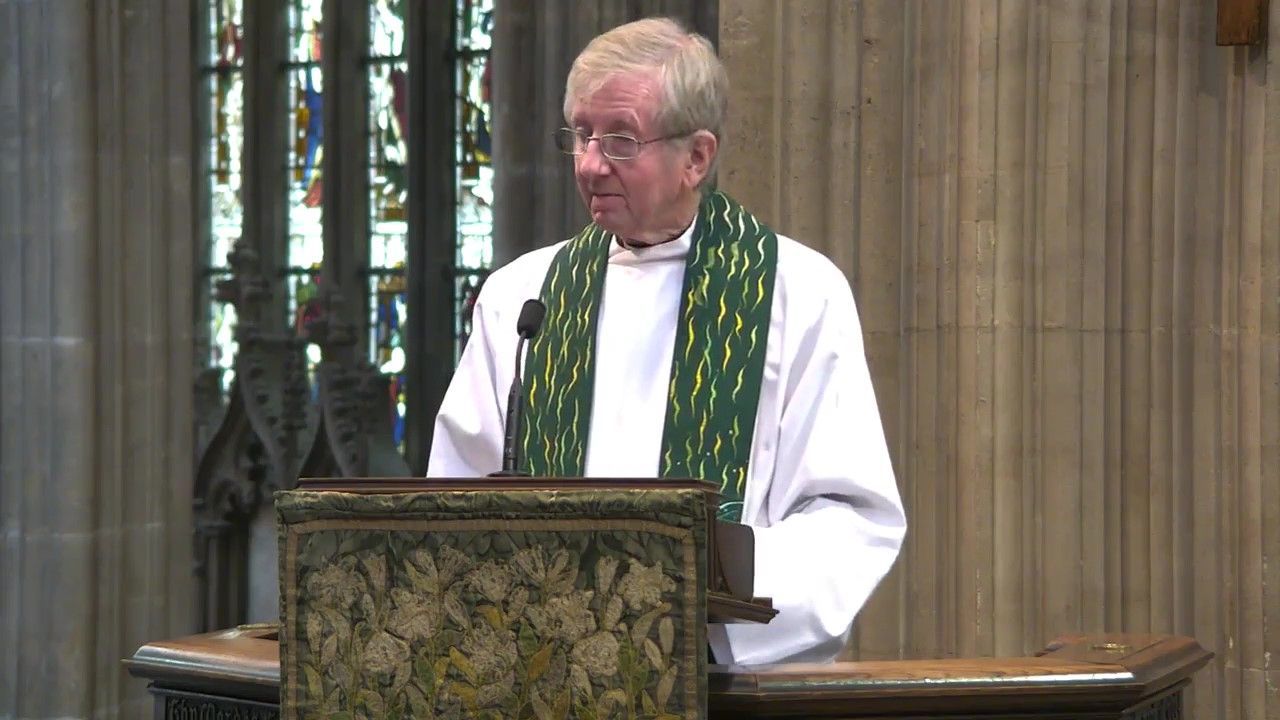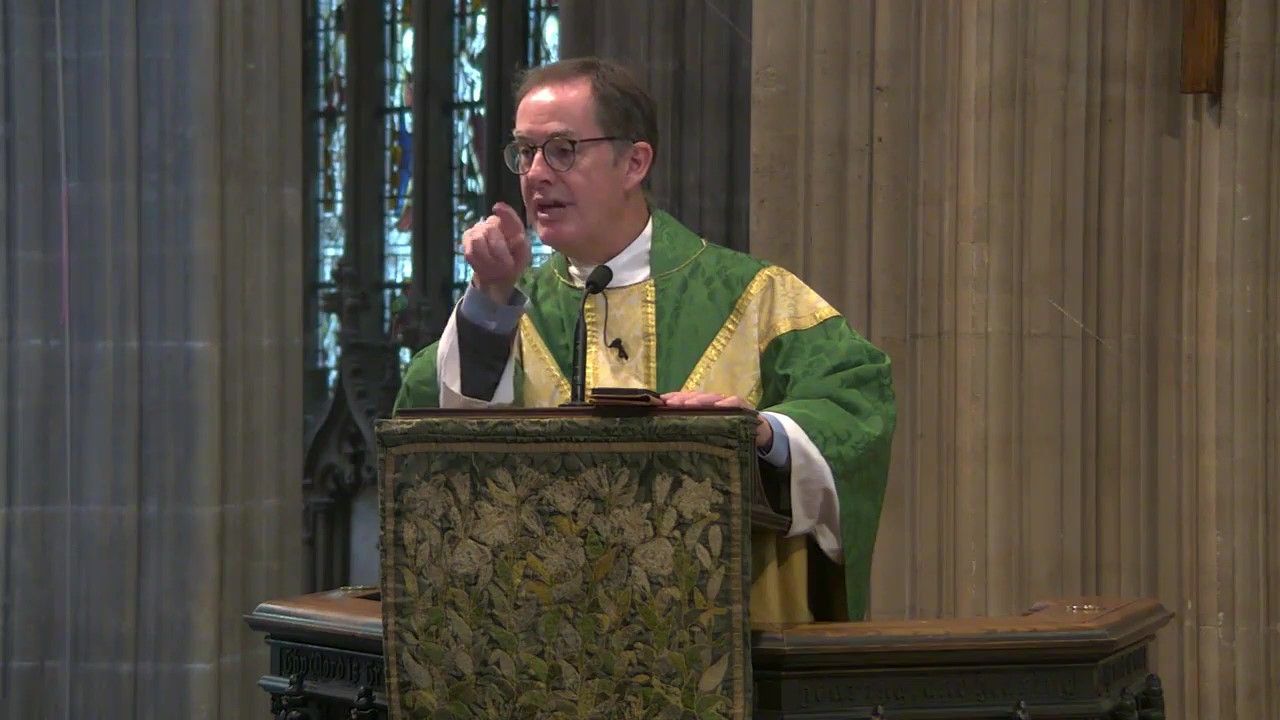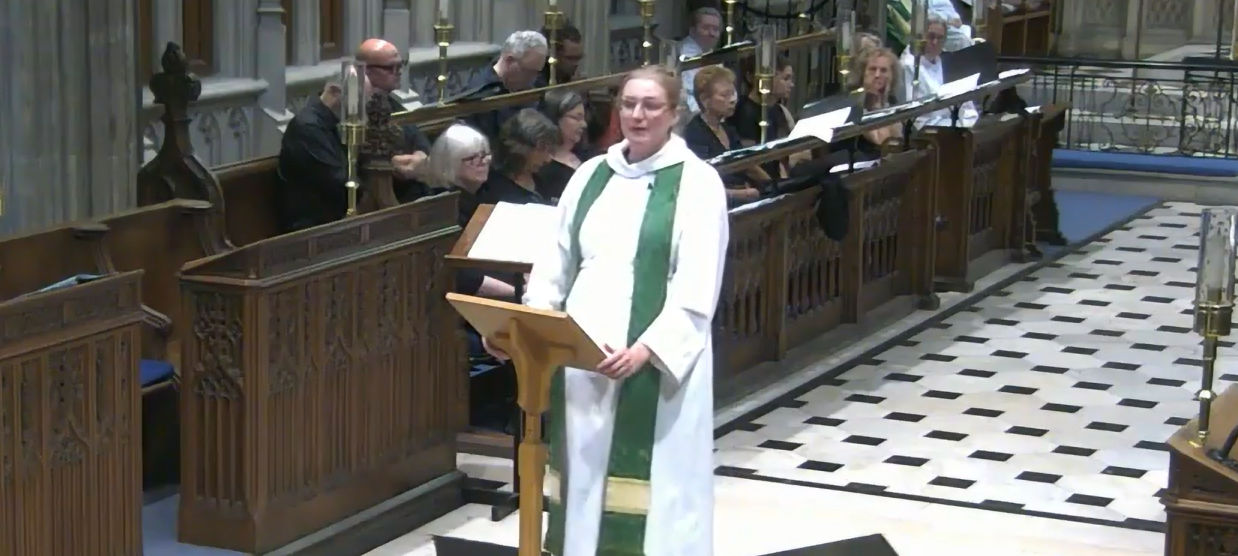Jesus the Superhero vs Jesus in the Wilderness
We are at the start of a journey… our Lent journey – On Wednesday, if you were able, we marked the beginning of this journey with Ash Wednesday- a public symbol of the journey we are about to take.
Since the fourth century, Christians have observed the 40 days before Easter as a period of reflection, repentance, fasting, abstinence, and acts of mercy.
In the Bible, forty is a sacred number. The Flood in this week's readings from Genesis 9 and 1 Peter 3 lasted forty days and forty nights. Israel wandered in the wilderness for forty years. Moses spent forty days and nights on Mt. Sinai. Jonah preached to Nineveh for forty days. And in the gospel of Mark this week, Jesus spent forty days in the desert fasting, praying, and battling the devil.
Often when I have heard the story of Jesus in the wilderness the thing that’s celebrated or noted is the fact that Jesus wins. And at times, to me Jesus has been pointed out as some muscly superhero over coming a baddie.
Here’s the problem with that understanding of the text: it leaves no room for Jesus’ humanity. It occurred to me, this week, that Jesus actually struggled in the wilderness. That he hurt. That he hungered. That he wept, thirsted, wrestled, and suffered. Instead, I assumed that his triumph over evil was a foregone conclusion — a “trial” that cost him nothing.
Lent isn’t a season for unshakeable superheroes. It’s a season for vulnerable creatures whose wilderness journeys are never easy or straightforward. It’s a season of shadow, a season when our certainties go into the fire and burn down to ash. It is a season of vulnerability, honesty, humility, and penitence.
All of that to say: to read Jesus’s wilderness story as a story of facile triumph is to miss the point. Why? Because we need the Jesus of the desert. We need to know that he wrestled with real demons and real dangers during those forty days of temptation. As alluring as it might be to cling to a divine superhero, we need the Jesus who endured a terrain where the Holy Spirit, Satan, the wild beasts, and the angels resided together. Alone, we’ll never survive such a dangerous place. With a companion who knows the way, though, we will.
Jesus didn't choose the wilderness. He didn’t schedule a expedition, or plan a desert marathon to improve his cardiovascular fitness. The Spirit of God “drove” him, compelled him, forced him, into the desolation of a wild and unsafe place. Jesus didn’t want to go, and it is very possible he resisted. But the Spirit drove him, anyway.
Maybe it’s strange that I find this detail comforting, but I do. Why? Because it rings true to life. Most of the time, we don’t choose to enter the wilderness. We don’t volunteer for pain, loss, danger, or terror. But the wilderness happens, anyway. Whether it comes to us in the guise of a devastating pandemic, a frightening hospital stay, a broken relationship, a hurting child, or a loss of faith, the wilderness appears, unbidden and unwelcome. And sometimes it is God’s own Spirit who drives us there.
Does this mean that God wills bad things to happen to us? That God wants us to suffer? No. Does it mean that God is ready to teach, shape, and redeem us even during the most barren periods of our lives? Yes.
In the startling economy of God, even a dangerous desert can become holy. Even our wilderness wanderings can reveal the divine.






